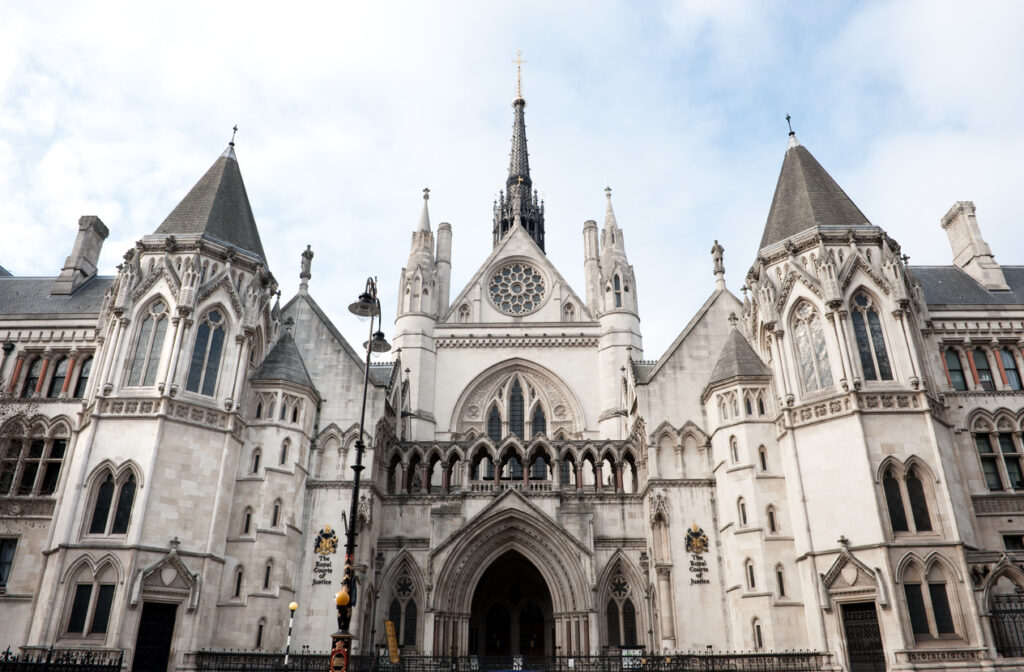Specialist tenancy management solicitors to protect landlords and ensure compliance
Effective tenancy management is essential for landlords looking to maintain positive and productive relationships with their tenants. A clear understanding of the legal rights and responsibilities of both parties lies at the heart of this process, and that’s where our dedicated team of experts can assist. From addressing disputes over repairs, rent arrears, and lease breaches to ensuring compliance with complex regulations, we provide tailored advice to help you manage tenancies smoothly and efficiently.
Common challenges, such as dealing with difficult tenants or navigating rent disputes, can be time-consuming and stressful. Recent legislative changes have added further complexity to tenancy management, making it vital for landlords to stay informed and adjust their strategies to comply with evolving laws. Failing to do so can lead to costly disputes or penalties, which can have long-term implications for your business.
Our specialist team offers proactive, practical support to ensure you remain compliant and mitigate potential risks. We work with a diverse range of clients, including registered providers of social housing, letting agents, and private landlords, providing tailored solutions that reflect the unique challenges you face. Whether you need assistance drafting tenancy agreements, resolving conflicts, or understanding new legislation, we’re here to help.

Gary Ekpenyoung
Partner
Specialising in Tenancy Management law
Possession claims
Our team excels in managing possession claims, expertly navigating every aspect of the eviction process. We provide comprehensive support in handling disrepair claims and recovering rent arrears, ensuring strict adherence to legal procedures. Our approach is designed to safeguard landlords’ interests while delivering effective, efficient solutions for all tenancy-related issues.
Recovering rent arrears
With extensive experience in recovering rent arrears, we deliver efficient and tailored solutions to address overdue payments. Our approach includes thorough analysis of outstanding balances, strategic negotiation with tenants, and legal action when necessary to secure owed rent. We employ proactive methods to identify and resolve payment issues early, aiming to recover the full amount due while preserving professional relationships. Our expertise ensures landlords receive the payments they are owed promptly, with minimal disruption to ongoing tenancy agreements.
Managing anti-social behaviour
Our team is highly trained in helping clients manage anti-social behaviour within rental properties.
We assist landlords in managing complaints of anti-social behaviour, such as noise disturbances or vandalism, by advising on evidence collection, enforcing lease terms, and obtaining court orders if necessary. For tenants, we offer guidance on addressing unjust accusations and protecting their rights. Our goal is to ensure a safe and respectful living environment through effective dispute resolution and legal remedies.
Disrepair claims
Our team is adept at handling disrepair claims between landlords and tenants over property maintenance issues. Our team skilfully addresses and resolves issues related to property condition, helping parties navigate disputes efficiently. We focus on minimising disruptions, protecting legal rights, and ensuring a balanced resolution that upholds our clients’ best interests.
Injunctions
Our dedicated team of legal experts provide specialist advice on hoarding injunctions in landlord and tenant disputes by helping secure court orders to address and resolve hoarding problems, ensuring properties are kept to legal standards and tenants meet their lease obligations, and protecting landlords’ rights.
Succession claims
Our succession claims service offers expert support for handling the transfer of commercial tenancies under succession rights. We guide landlords and tenants through the complexities of legal entitlements, facilitate negotiations, and resolve disputes, ensuring a seamless and compliant transition of tenancy rights.
HMO advice
Our HMO advice service provides expert guidance on managing houses in multiple occupation within commercial tenancy settings. We offer support on regulatory compliance, licensing requirements, and best practices for effective HMO management, ensuring landlords adhere to legal standards while optimising property use and tenant satisfaction.
Why choose Shakespeare Martineau?
- Our team offer prompt and professional service, whether through in-person meetings or virtual consultations, you can trust that our advice will be timely and professional, helping you feel confident in your legal matters, every step of the way
- We provide advice that is not only pragmatic and quick but also easy to understand. Every lawyer in our firm is approachable, helpful, and committed to offering reliable legal solutions, making the process straightforward for clients
- Our clear and easily understandable approach has kept clients coming back for years, knowing they can depend on us for comprehensive legal support time and time again
- Our clients regularly highlight the exceptional expertise and professionalism of our lawyers. Our team cares deeply about every aspect of your case, ensuring you receive a thorough and attentive service


Expertise in leasehold management solutions
The team is known for its wide knowledge of leasehold management issues and operational problems. We have assisted our clients in the drafting of their rent recovery and service charge policies and procedures which have resulted in significantly reduced arrears figures. The team has secured the legal panel appointment with The Sovini Group and Notting Hill Genesis.
Tailored solutions for tenancy disputes
We offer strategic solutions and a proactive approach to resolving disrepair claims and rent arrears, with each strategy customised to address the specific circumstances of our clients. By leveraging our comprehensive understanding of tenancy law and recent reforms, we ensure that our methods are both legally sound and practical. Our team meticulously assesses each case to develop tailored solutions that address underlying issues, negotiate favourable terms, and expedite resolution, all while aiming to minimise disruption and maintain positive landlord-tenant relationships.
Leading expertise in leasehold reform
We have invested significantly into the growth of our team and collaborate seamlessly with our market leading social housing team, to develop the wider practice offering to RP clients in the area of leasehold reform, building safety, and general leasehold management. Including successfully defending an application under s27A Landlord and Tenant Act 1985 where leaseholders collectively applied to the First Tier Tribunal for a determination as to whether the service charge levied by the RP regarding communal cleaning and estate charges is reasonably payable, and a successful committal application for breach of injunction by tenant under Part 1 Anti-Social Behaviour Crime and Policing Act 2014.
Expert property litigation and sustainability
We uphold a Tier 3 ranking in Legal 500 for Property Litigation, being one of the largest property litigation teams in the Midlands. Our tenancy management service is recognised for its exceptional skill in handling complex property disputes and ensuring favourable outcomes for our clients. We support our clients reach their Net Zero and sustainability targets by advising on methods for and recoverability of costs for installing solar PV on buildings and other energy efficient systems.
Related services
Meet our Tenancy Management team
Building a responsible business
Our commitment to sustainability and social impact
We are an accredited B Corporation that is committed to driving positive change in our communities, minimising our impact on the environment, and ensuring an all inclusive diverse and supportive culture for our people.
Wherever you are on your journey, our Tenancy Management specialists are here to answer any questions you might have
If you’d like to speak to a member of our team, please fill out the enquiry form. We will aim to reply to your query within 2 hours
Need to talk to someone sooner? You can call use at the number below
Call Us: 0330 024 0333
Tenancy Management FAQs
The most common reason for evicting a tenant under a commercial lease agreement is for the non-payment of rent, however, forfeiture may be allowed for other reasons such as a breach of the terms of a lease, abandonment or any form of insolvency.
If a commercial tenant has not paid their rent within a certain timeframe, and you have a valid forfeiture clause in the tenancy agreement, you can evict the commercial tenant, either by peaceable re-entry where you can provide a notice of repossession and repossess the property after seven days or by serving a section 146 notice to rectify the breach.
In some instances, where the tenant does not dispute a landlord’s decision, it can take up to 6 weeks, however, if you need to go to court and involve bailiffs, this may take between 8-12 months.
A commercial landlord’s responsibilities regarding property repairs are typically outlined in the lease agreement, but generally include maintaining the structural integrity of the property, such as the roof, walls, and foundations, as well as ensuring compliance with health and safety regulations. Landlords are usually responsible for major repairs to common areas, external parts of the building, and ensuring essential services like heating, water, and electricity are operational.
Commercial landlords can effectively manage rent arrears by exercising the following options;
Forfeiture, the landlord’s right to terminate the lease if the tenant is in breach of any of its covenants.
Commercial Rent Arrears Recovery (CRAR), providing the ability to instruct an enforcement agent to take control of a tenant’s goods and sell them in order to recover the value of the rent arrears.
Drawing down on a rent deposit, notice must be provided that this is being taken and the tenant will be required to replenish the funds that have been used from the deposit account.
Pursue a guarantor, depending on the provisions contained within the lease and the guarantee given by the guarantor, the landlord would usually issue court proceedings to enforce the guarantor’s obligations.
Serve a statutory demand, if payment is not made by the tenant within three weeks, the landlord can issue a petition to wind up the tenant’s business, which can often result in the commercial rent arrears being paid quickly.
Commence court proceedings, landlords can issue court proceedings to recover the tenant’s rent arrears, but this is often a last resort as it can be a lengthy and expensive process.
Landlords must comply with the Landlord and Tenant Act 1954 by firstly reviewing the lease agreement to understand the terms regarding notice periods and grounds for eviction.
When terminating a tenancy under the 1954 Act, landlords must serve a Section 25 notice between six and twelve months before the intended termination date and cannot end the tenancy before the lease expires.
Valid grounds for opposing a lease renewal include tenant breaches, persistent rent delays, or redevelopment plans.
The notice must be delivered to the tenant according to the lease’s terms and statutory requirements, usually in writing and via registered or recorded delivery. If the tenant does not vacate by the notice date, the landlord may need to apply for a possession order from the court, which could involve a hearing if the tenant contests the eviction.
A disrepair claim can be defended if the landlord can show that they responded promptly to any suggestion of disrepair and that any necessary works were carried out within a ‘reasonable’ period of time. It is advised to keep detailed records of the property’s condition through pre-tenancy inspections and regular maintenance reports, ensuring that all repairs and maintenance issues are promptly addressed and documented. Additionally, they should keep clear communication with tenants, including written responses to repair requests, and use photographic evidence to support the property’s condition.
The Renters (Reform) Bill 2024 was designed to “bring in a better deal for renters”, including abolishing Section 21 ‘no fault’ evictions, and ending fixed-term tenancies. In the early stages of the new Labour government, we are yet to hear concrete next steps for the Bill, however, the recent Kings Speech from July 2024 confirmed that the government would give “greater rights and protections to people renting their homes, including ending ‘no fault’ evictions and reforming grounds for possession” through this new Renters’ Rights Bill.
Landlords can ensure compliance with commercial tenancy regulations by familiarising themselves with relevant laws such as the Landlord and Tenant Act 1954, which governs lease renewal and termination rights, and the Health and Safety at Work Act 1974, which mandates safe premises for business operations. Additionally, landlords should ensure compliance with the Equality Act 2010 by making reasonable adjustments for disabled tenants.














